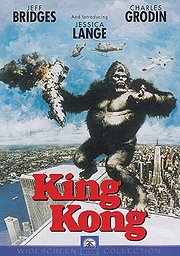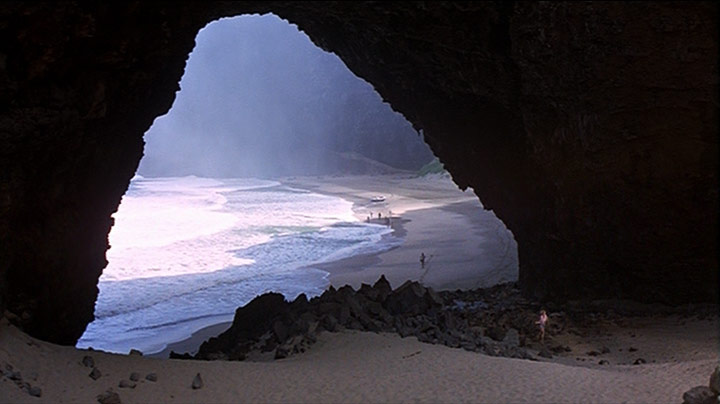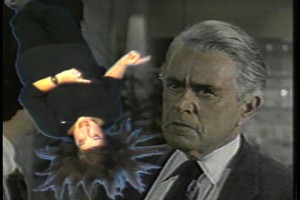King Kong (review of remake, 1977)
From Monthly Film Bulletin, February 1977. — J.R.
King Kong
U.S.A., 1976
Director: John Guillermin
The Petrox Oil Company sends an expedition by ship into Micronesia, hoping to find petroleum deposits on uncharted Skull Island. Group leader Fred Wilson and scientist Bagley believe that the vapor surrounding the island may come from oil, but Princeton University paleethnologist Jack Prescott — a stowaway — suggests animal respiration, and talks of ancient accounts of Kong, a prehistoric monster. Dwan, a prospective starlet and sole survivor of an explosion that destroyed a film producer’s boat en route to Hong Kong, is picked up before the ship reaches the island. Ashore, Wilson, Bagley, Jack and Dwan come upon an enormous wall and a native ritual in which a girl is about to be sacrificed. That night, as Dwan is about to keep a sexual rendezvous with Jack, she is kidnapped by natives and offered as an altar gift to Kong, a forty-foot ape who arrives and carries her away. While Jack penetrates the jungle with a rescue team, Wilson learns from Bagley that the island’s oil deposits won’t be usable for another 10,000 years, and begins to think of capturing Kong for use in Petrox publicity. Read more





